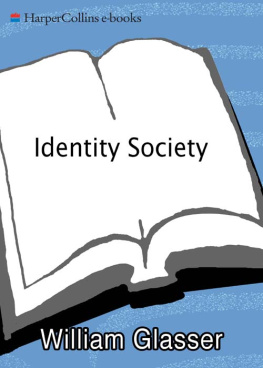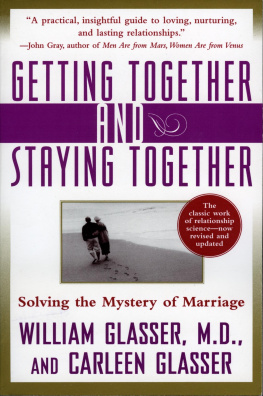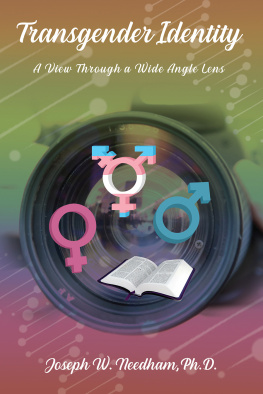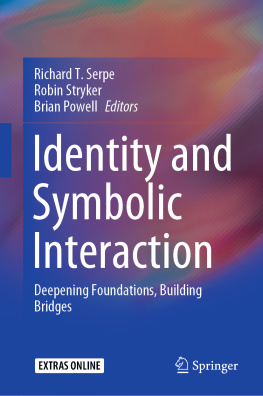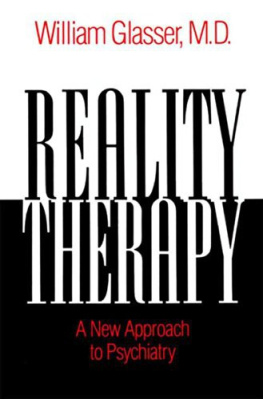William Glasser - Identity Society
Here you can read online William Glasser - Identity Society full text of the book (entire story) in english for free. Download pdf and epub, get meaning, cover and reviews about this ebook. year: 2011, publisher: HarperCollins, genre: Politics. Description of the work, (preface) as well as reviews are available. Best literature library LitArk.com created for fans of good reading and offers a wide selection of genres:
Romance novel
Science fiction
Adventure
Detective
Science
History
Home and family
Prose
Art
Politics
Computer
Non-fiction
Religion
Business
Children
Humor
Choose a favorite category and find really read worthwhile books. Enjoy immersion in the world of imagination, feel the emotions of the characters or learn something new for yourself, make an fascinating discovery.
- Book:Identity Society
- Author:
- Publisher:HarperCollins
- Genre:
- Year:2011
- Rating:5 / 5
- Favourites:Add to favourites
- Your mark:
- 100
- 1
- 2
- 3
- 4
- 5
Identity Society: summary, description and annotation
We offer to read an annotation, description, summary or preface (depends on what the author of the book "Identity Society" wrote himself). If you haven't found the necessary information about the book — write in the comments, we will try to find it.
This interesting societal study by the father of Reality Therapy presents a view that since survival is no longer the major issue for humans, development of self and identity is a normal social quest.
Identity Society — read online for free the complete book (whole text) full work
Below is the text of the book, divided by pages. System saving the place of the last page read, allows you to conveniently read the book "Identity Society" online for free, without having to search again every time where you left off. Put a bookmark, and you can go to the page where you finished reading at any time.
Font size:
Interval:
Bookmark:
William Glasser, M.D.

To Donald O'Donnell
Evidence of Change
The chain of events that led to the idea of the identity society started in 1965 when I began to work in the Los Angeles public schools, initially in the inner city near Watts. There, the difficulty in motivating students to do traditional school work alerted me to the drastic changes occurring in our society, changes that were affecting both students and teachers. This book, however, is not about the schools. They are mentioned here only because they so elearly reflect what is occurring not only to students but to all of usthe half-billion people who live in the affluent Western worldwho are moving right now into what I believe is best called an identity society.
Once the idea of the identity society came I could see that what I was encountering in the schools applied in many other situations. I came to believe that the failure of prisons, reform schools, and mental hospitals, the failure of many marriages and the resultant family problems, and the growing number of individuals who are unhappy with their lives but do not know clearly why are all part of an emerging pattern that is all around yet difficult to see.
As I was searching for this pattern I read an interview with Marshall McLuhan in the March 1969 Playboy magazine. McLuhans reply to a question about social unrest seemed to provide the answer I was seeking. He said, From Tokyo to Paris to Columbia, youth mindlessly acts its identity quest in the theatre of the streets searching not for goals but for roles, striving for an identity that eludes them.
McLuhan explains that the students are searching for a role, an identity reached only through personal fulfillment. Throughout history most people have thought little about attaining an identity because it was beyond their grasp. They were content to reach a goal, minimally to survive, hopefully to become secure. McLuhan believes that recently something new has happened, that while the traditional struggle for a goala job, a diploma, a home, a secure familystill exists, now suddenly it has been preceded by the struggle to find oneself as a human being, to become aware of and enjoy the pleasures implicit in our own humanity. Unlike the traditional goals, which may vary widely, role, or, as I prefer to call it, our new desire for identity, is about the same for all people. Today almost everyone aspires to live in a way that can provide a happy, successful, pleasurable belief in himself. Role, or identity, is now so important for the young that it must be achieved in some degree before they will work hard for any goal. As a society we can no longer afford to ignore this new priority in human motivation. For example, institutions such as schools and families that function as if this new motivational sequence did not exist are now in serious trouble.
It is my argument that today almost everyone is personally engaged in a search for acceptance as a person or as a person performing a task rather than as a performer of a task alone. Blacks may search for identity through black power, women through womens liberation and consciousness-raising sessions, and businessmen through meditation. Even the armed forces, a most unlikely institution to recognize personal identity, are beginning to do so. They are adopting new training and living procedures in which the recruit is to some degree accepted as a human being, not just as a body to serve without question.
Tradition, however, has far from run its course. Institutions of our society, especially our schools, still operate with insufficient humanity, that is, as if goal took precedence over role. They are slowly changing, however. The demonstrations and occasional violence on our campuses, provoked by our intellectual youth, that called our attention to the change toward an identity society have run their course. The ending of demonstrations is due partly to a change in the colleges toward a more human approach to students and partly to the withdrawal of American troops from Southeast Asia. In our high schools, there is apathy and increased use of drugs, and of alcohol. Nevertheless, as our society has responded generally to the ending of demonstrations with more acceptance of our young, there are many indications that at least the intellectual young are responding with hard work and the pursuit of goals. We, however, should not be misled by a new soberness of one segment of our young into thinking that the clock has turned back. It never has and never will. We will see more of the response we are seeinga pursuit of goalsif we can give all of our young the personal support and the recognition that they need and deserve but that most of them do not now get. Given adequate recognition, however, at home and at school, many more young people will direct their energy into pursuing a goal because they know that a rolean identity that is fulfillingis not gained through passive involvement with personal pleasure. More will discover that it has to be tied to work and accomplishment, that happiness must be thoughtfully and vigorously pursued or it disappears.
In the seventies we are seeing the blue collar young join the search for an identity as the college students did in the sixties. Studs Terkel, in his 1973 book Working, describes the shift toward the search for personal fulfillment not only in the blue-collar young but in the lives of workers of all ages and occupations. As they tell their stories in his book, the different people show a constant preoccupation with the human parts of their lives and how they wish to fulfill themselves more regardless of what they do. There is anger, suffering, and apathy among many who find their lives dull and unrewarding. If ever a book were written to support the concept of the identity society, Working is (inadvertently) that book.
As we move into the identity society, almost everyone is secure enough (or thinks he may soon be) so that the old motivations of security and fear are being challenged by the new motivation of personal fulfillment. Although unemployment and inflation may reduce security and cause these motivations again to come into conflict, it is the thesis of this book that we have entered a new epoch. Five hundred million people have had enough of a taste of fulfillment, or at least realize that they are missing something important, so that they will not return to or accept the personally dehumanizing way of life that too many have accepted for too long.
Note: See Appendix for a speculative anthropological explanation of where this new identity society fits into the five-million-year history of mankind.
The Identity Society
Led by the young, the half-billion people of the Western world have begun a rapid, turmoil-filled evolution toward a new role-dominated society that I call the identity society. Less anxious than formerly about fulfilling goals to obtain security within the power hierarchy, people today concern themselves more and more with an independent roletheir identity. Of course, people still strive for goals; increasingly, however, they are goals, vocational or avocational, that people believe will reinforce their concept of themselves as persons. For example, not everyone can work at a job that gives him a lot of satisfaction such as that of doctor, artist, or teacher, but anyone can pursue a recreational goal, such as bowling or playing bridge, or a volunteer goal, such as working in a hospital or fund raising, that reinforces his view of himself as someone.
Font size:
Interval:
Bookmark:
Similar books «Identity Society»
Look at similar books to Identity Society. We have selected literature similar in name and meaning in the hope of providing readers with more options to find new, interesting, not yet read works.
Discussion, reviews of the book Identity Society and just readers' own opinions. Leave your comments, write what you think about the work, its meaning or the main characters. Specify what exactly you liked and what you didn't like, and why you think so.

